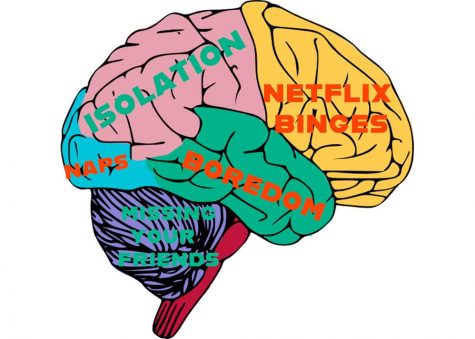Protecting kids’ feelings by hiding the truth ultimately hurts them
In early May, a high school cheerleading squad in New Jersey implemented a new rule stating that every student who goes for the cheerleading squad must be accepted. Enacted after multiple complaints from local parents, this new policy aims to make the program more inclusive. Despite the long-standing scoring system used to evaluate tryouts, girls who did not make the team commented on the unfairness of the situation. While this new policy does promote inclusivity, it also undermines skill and dedication, leaving those who worked hard to earn their spots indifferent than everyone else. Unfortunately, situations where the school system unnecessarily shields kids from the truth are common. In trying to “protect” the feelings of the youth, these emerging adults become sensitized everything and disconnected from reality.
In the case of the cheerleading controversy, changing the policy to accommodate a few girls who failed to qualify for the team is absurd. The girls who were rejected just simply failed to meet the team requirements, and understanding that one cannot endlessly achieve is an important for the developing minds of high-schoolers. By allowing unqualified members to join the highest level team, or any team at all, those with lesser skill sets are set up to fail. While they may feel initial disappointment or embarrassment after not making the cut, these children are ultimately better off finding a new activity to join or working to improve for the following year.
Another way in which kids—typically those under the age of 10—are shielded from the truth is by being rewarded with participation trophies in competitive situations. Trophies should be used to celebrate the accomplishments of individual assets to teams, not to make every child feel better about themselves. Participation trophies undermine the achievements of the “better” players; after all,awarding a trophy to every child on a team strips the trophy of its value. Trophies should be a source of inspiration for lesser-skilled players to motivate them to work harder and improve.
Overall, children must be presented with a healthy dose of reality from a young age. While one should encourage children to try their best, they should also ease them into the hard truth that not everyone can succeed at everything. Not every child will make every team, and not every adult will receive every job.. Competitive sports are competitive for a reason, and instead of trying to protect a child from the reality that they are not perfect, let them either find what they are good at or allow them to practice, grow and try out next year.
Your donation will support the student journalists of Calabasas High School. Your contribution will allow us to purchase equipment and cover our annual website hosting costs.












